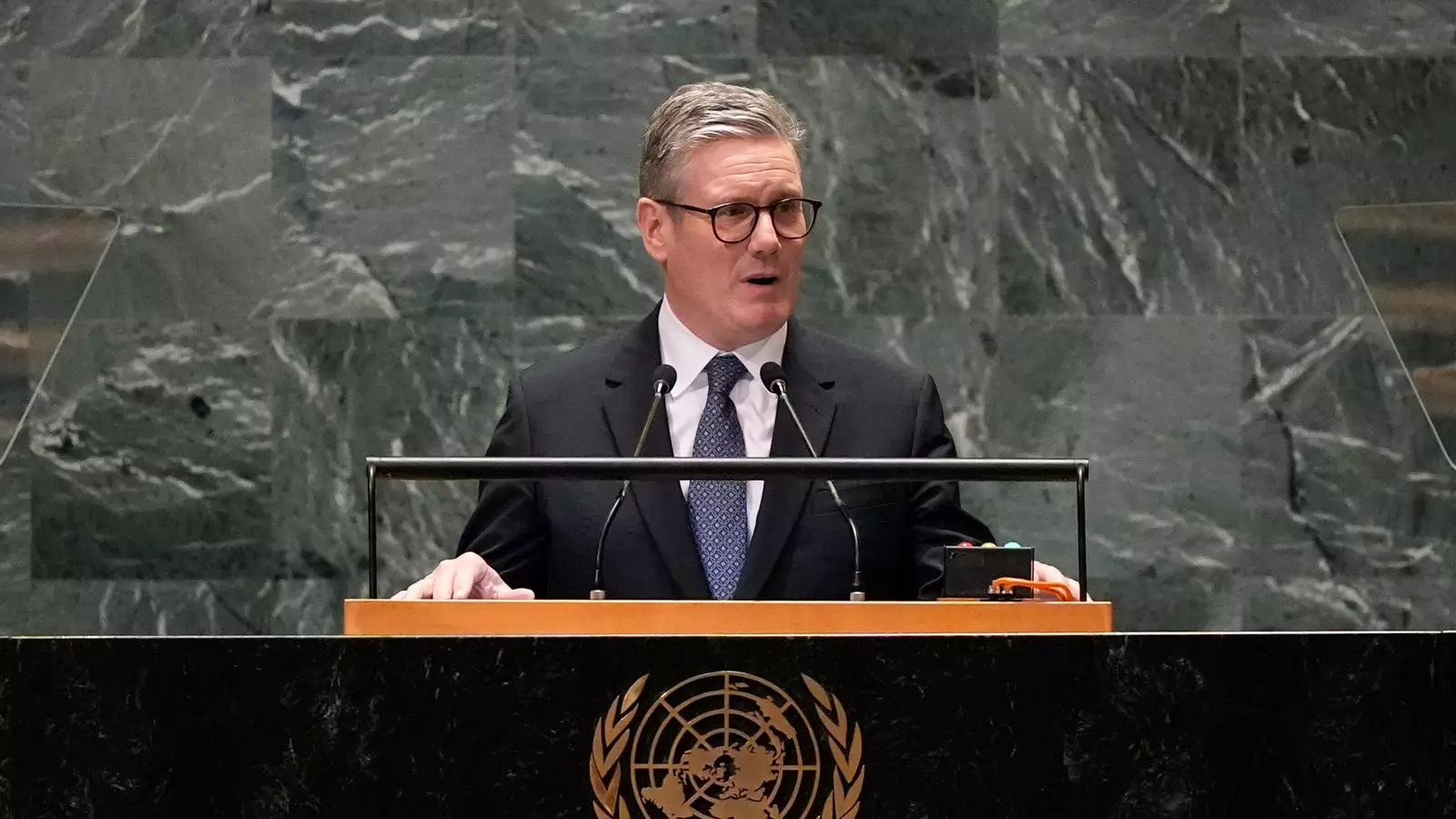In a compelling address at the United Nations General Assembly, UK Prime Minister Sir Keir Starmer urged both Israel and Hezbollah to halt their hostilities, articulating a strong call for peace in the face of escalating violence. Starmer’s statements emphasized the need for immediate cessation of military action, asserting that “escalation serves no one.” His appeal resonated against the backdrop of Israeli Prime Minister Benjamin Netanyahu’s firm stance on sustaining military operations, illustrating a profound disconnection between the two leaders’ approaches to conflict resolution.
Starmer’s insistence on a diplomatic rectification of the situation highlights the critical role of international dialogue in mitigating the complexities of the Middle East conflict. By asking both factions to “step back from the brink,” Starmer advocates for a proactive stance in addressing violent confrontations through forums designed for negotiation, rather than conflict.
In his speech, Sir Keir broadened the discussion from the immediate Israel-Hezbollah conflict to encompass the larger responsibilities of the United Nations. He articulated the necessity for enhanced collaboration among nations to foster peace, progress, and equality, explicitly mentioning the importance of preventing a regional war. This point is crucial as it underscores the interconnectedness of global stability with regional conflicts, where inaction can lead to wider implications that transcend specific territorial economies.
Starmer’s remarks also reinforced the call for the UN to evolve in its approach to peacekeeping and conflict resolution, pushing for innovative strategies that reflect contemporary challenges. The prime minister’s critique of existing frameworks signals the need for revitalization within international institutions—implying that the status quo may be inadequate in addressing the complexities of modern geopolitical dynamics.
Further into his UN engagement, Sir Keir Starmer took a definitive stand against Russia’s actions in Ukraine, labeling them as “the greatest violation of the charter in a generation.” His denunciation of Russia during the security council meeting indicates a willingness to reassess diplomatic relations and possibly take a more aggressive stance against violations of international law. This assertion not only positions Starmer as a leader who is committed to global governance but also emphasizes the UK’s role as a permanent member of the UN Security Council to uphold accountability among its peers.
Starmer’s narrative is indicative of a broader call within Western democracies for a united front against aggressors who undermine global stability. By advocating for “new energy and creativity” in conflict resolution, he suggests a shift in the diplomatic toolkit, urging nations to confront entrenched issues with both ingenuity and optimism.
In addition to his international focus, Sir Keir Starmer reiterated his government’s commitment to domestic issues, particularly the pressing matter of climate change. He announced strategic plans to invest billions from pension and insurance funds into initiatives aimed at combating environmental challenges and promoting sustainable development. This announcement illustrates a critical pivot towards aligning financial resources with responsible ecological practices, aiming to foster a greener future.
Starmer’s vision of utilizing private investments to drive growth signals a departure from traditional economic strategies and marks a step toward integrating economic policies with urgent climate needs. His approach advocates for a melding of economic and ecological priorities, suggesting that prosperity and sustainability can go hand in hand.
As Starmer prepared for a meeting with Donald Trump during his UN visit, the timing of the encounter underscored the complexity of international relationships as the US inches closer to its elections. While certain dialogues appear promising, the likelihood of meeting other key figures, such as Kamala Harris, indicates the challenges faced in navigating a politically diverse landscape.
Sir Keir Starmer’s speeches and commitments made at the UN reflect a multifaceted approach to both international and domestic policies. His emphatic plea for peace amidst rising tensions, criticism of aggressor nations, and innovative domestic strategies encapsulate his vision for a balanced and progressive agenda, one that seeks to both heal divisions and build a sustainable future.


Leave a Reply